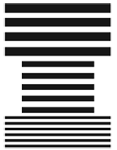Indexers
Indexers have a unique combination of skills. They can:
- organise recorded knowledge in any of its formats
- analyse the structure and content of particular works
- express complex ideas concisely
- arrange information systematically into a helpful order
- create finding aids (i.e. indexes, abstracts, subject gateways) to help users find information quickly add value to a project by providing many access points to information.
By working in conjunction with other information professionals (such as publishers, editors, librarians, database developers and webmasters) indexers can make a contribution to the planning, development and management of information projects.
What makes a good index?
A good index is:
- accurate
- impartial
- comprehensive
- easy to use, and
- points to the information you want.
Types of indexing
There are many different types of indexing, some of which require specialised skills from indexers. Examples include:
- Bibliographic and database indexing
- Genealogical indexing
- Geographical indexing
- Book indexing
- Legal indexing
- Periodical and newspaper indexing
- Pictorial indexing
- Subject gateways
- Website and metadata indexing
Learn more
There are a range of courses and workshops on indexing, and the various ANZSI groups offer a chance to meet others interested in indexing at meetings. You can find out more about indexing under About indexing.
